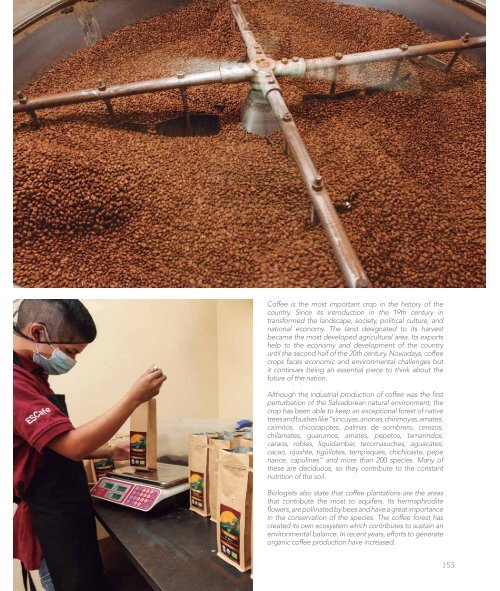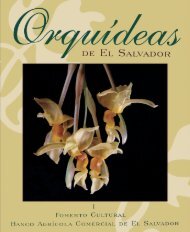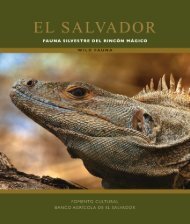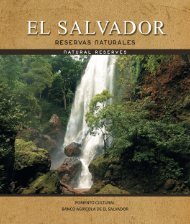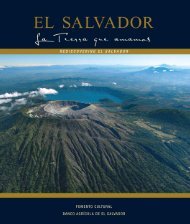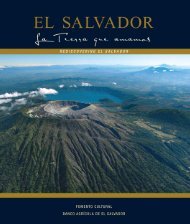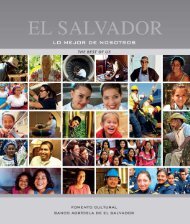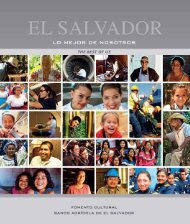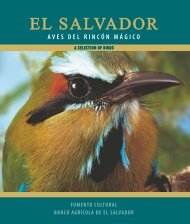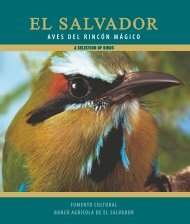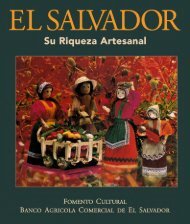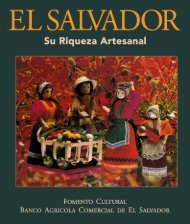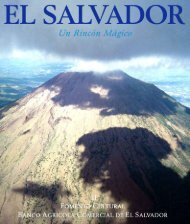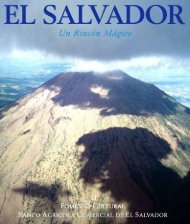You also want an ePaper? Increase the reach of your titles
YUMPU automatically turns print PDFs into web optimized ePapers that Google loves.
Coffee is the most important crop in the history of the<br />
country. Since its introduction in the 19th century in<br />
transformed the landscape, society, political culture, and<br />
national economy. The land designated to its harvest<br />
became the most developed agricultural area. Its exports<br />
help to the economy and development of the country<br />
until the second half of the 20th century. Nowadays, coffee<br />
crops faces economic and environmental challenges but<br />
it continues being an essential piece to think about the<br />
future of the nation.<br />
Although the industrial production of coffee was the first<br />
perturbation of the Salvadorean natural environment, the<br />
crop has been able to keep an exceptional forest of native<br />
trees and bushes like “sincuyas, anonas, chirimoyas, amates,<br />
caimitos, chicozapotes, palmas de sombrero, cerezos,<br />
chilamates, guarumos, amates, pepetos, tamarindos,<br />
caraos, robles, liquidambar, tecomasuches, aguacates,<br />
cacao, ojushte, tigüilotes, tempis<strong>que</strong>s, chichicaste, pepe<br />
nance, capulines” and more than 200 species. Many of<br />
these are deciduous, so they contribute to the constant<br />
nutrition of the soil.<br />
Biologists also state that coffee plantations are the areas<br />
that contribute the most to aquifers. Its hermaphrodite<br />
flowers, are pollinated by bees and have a great importance<br />
in the conservation of the species. The coffee forest has<br />
created its own ecosystem which contributes to sustain an<br />
environmental balance. In recent years, efforts to generate<br />
organic coffee production have increased.<br />
153


